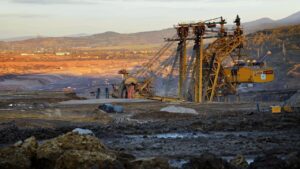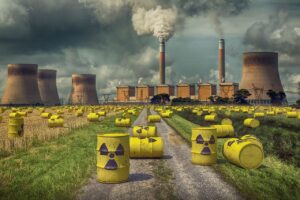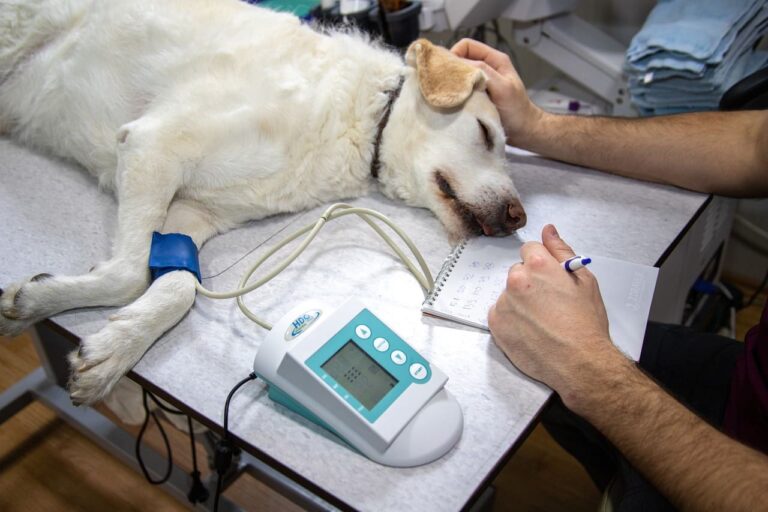Specialized Engineering Disciplines
Table of Contents
ToggleSpecialized Engineering Disciplines: A Comprehensive Guide for Aspiring Engineers
Introduction
Engineering is a vast field that plays a critical role in shaping the world around us. From the infrastructure we rely on to the technology we use daily, engineering is the backbone of modern society. This article provides an in-depth look at various specialized engineering disciplines, offering guidance for students who intend to pursue careers in these fields. We will explore the definition, importance, and diverse opportunities within each discipline, with a special focus on the global landscape and the context of India.
Overview of Engineering Disciplines
Definition and Importance of Engineering
Engineering is the application of scientific and mathematical principles to design, build, and maintain structures, machines, and processes. It is a field that solves real-world problems through innovation, creativity, and technical expertise. Engineers are pivotal in developing new technologies, improving existing ones, and ensuring the safety and efficiency of systems that underpin our daily lives.
Engineering disciplines apart from the traditional disciplines, encompass a wide range of specialized fields, each with its unique focus and application. These specialized engineering disciplines are critical in addressing the complex challenges of the 21st century, from sustainable energy to advanced medical treatments.
Introduction to Specialized Fields in Engineering
Specialized engineering disciplines allow engineers to concentrate on specific areas of interest and expertise. This specialization enables more profound advancements and targeted solutions within each field. Below, we explore six prominent specialized engineering disciplines, outlining their scope, educational pathways, necessary skills, career opportunities, and professional development.
1. Chemical Engineering
Description and Scope
 Chemical engineering is a specialized engineering discipline that combines principles of chemistry, physics, and mathematics to design and optimize processes for converting raw materials into valuable products. This field is essential in various industries, ensuring efficient and safe production methods.
Chemical engineering is a specialized engineering discipline that combines principles of chemistry, physics, and mathematics to design and optimize processes for converting raw materials into valuable products. This field is essential in various industries, ensuring efficient and safe production methods.
Definition of Chemical Engineering
Chemical engineering focuses on developing and managing processes that transform raw materials into useful products such as fuels, chemicals, and pharmaceuticals. It involves understanding chemical reactions, process design, and system optimization.
Key Areas of Work
- Process Design: Creating efficient and safe production processes.
- Pharmaceuticals: Developing and manufacturing drugs and medical treatments.
- Energy: Optimizing the production and use of fuels and energy sources.
- Food and Beverages: Ensuring safe and efficient food processing methods.
- Environmental Protection: Designing processes that minimize environmental impact.
Educational Pathway
Relevant High School Subjects
- Chemistry: Understanding chemical reactions and properties.
- Physics: Learning about energy, forces, and material properties.
- Mathematics: Developing problem-solving and analytical skills.
Undergraduate Coursework
- Thermodynamics: Studying heat transfer and energy conversion.
- Process Engineering: Learning how to design and control industrial processes.
- Materials Science: Understanding the properties and applications of different materials.
Advanced Degrees and Specializations
Pursuing a master’s or PhD can lead to specializations in areas like biochemical engineering, nanotechnology, or environmental engineering, allowing for deeper expertise in specific aspects of chemical engineering.
Skills and Competencies
- Analytical Skills: Ability to analyze complex data and solve problems.
- Problem-Solving: Developing innovative solutions to technical challenges.
- Knowledge of Chemical Processes: Understanding chemical reactions and process dynamics.
Career Opportunities
Industries
- Manufacturing: Improving production processes and product quality.
- Healthcare: Developing new drugs and medical technologies.
- Environmental Agencies: Creating sustainable processes to reduce environmental impact.
Job Roles
- Process Engineer: Designing and optimizing manufacturing processes.
- Research Scientist: Conducting experiments and developing new technologies.
- Production Manager: Overseeing production operations and ensuring efficiency.
Professional Development
Certification
- FE Exam: The Fundamentals of Engineering exam, a step toward becoming a licensed engineer.
- PE Exam: The Professional Engineer exam, which certifies professional competency in chemical engineering.
Professional Organizations
- AIChE: The American Institute of Chemical Engineers provides resources, networking opportunities, and professional development for chemical engineers.
By focusing on these aspects, students interested in chemical engineering can understand the scope and opportunities within this specialized engineering discipline and prepare effectively for a rewarding career.
2. Geological Engineering
Description and Scope
 Geological engineering is a specialized engineering discipline that combines principles of geology and engineering to solve problems related to earth materials. This field is essential for understanding and managing the Earth’s resources and for ensuring safe and sustainable development.
Geological engineering is a specialized engineering discipline that combines principles of geology and engineering to solve problems related to earth materials. This field is essential for understanding and managing the Earth’s resources and for ensuring safe and sustainable development.
Definition of Geological Engineering
Geological engineering involves the study of the Earth’s structure and materials to design and construct stable foundations, tunnels, and other structures. It also focuses on resource extraction and environmental protection.
Key Areas of Work
- Geotechnical Engineering: Designing and constructing foundations, slopes, and retaining structures.
- Environmental Engineering: Managing and mitigating environmental impacts of construction and resource extraction.
- Resource Extraction: Finding and efficiently extracting minerals, oil, and gas from the Earth.
Educational Pathway
Relevant High School Subjects
- Geology: Understanding Earth processes and materials.
- Earth Sciences: Studying the physical characteristics of the Earth.
- Mathematics: Developing problem-solving and analytical skills.
Undergraduate Coursework
- Geology: Learning about rock formations, minerals, and Earth processes.
- Soil Mechanics: Understanding the behavior of soil and its use in construction.
- Hydrogeology: Studying groundwater flow and water resources.
Advanced Degrees and Specializations
Pursuing a master’s or PhD can lead to specializations in areas like geotechnical engineering, environmental geology, or hydrogeology, allowing for deeper expertise in specific aspects of geological engineering.
Skills and Competencies
- Fieldwork Proficiency: Ability to conduct surveys and collect data in various environments.
- Data Analysis: Analyzing geological data to make informed decisions.
- Understanding of Geological Formations: Knowledge of how different geological structures and materials behave.
Career Opportunities
Industries
- Construction: Ensuring the stability and safety of buildings and infrastructure.
- Environmental Consulting: Assessing and mitigating environmental impacts.
- Mining: Finding and extracting valuable minerals and resources.
Job Roles
- Geotechnical Engineer: Designing foundations and other structures that interact with the ground.
- Environmental Engineer: Working on projects that protect the environment and manage resources sustainably.
- Hydrologist: Studying and managing water resources, including groundwater and surface water.
Professional Development
Certification
- GIT: The Geologist in Training certification, a step toward becoming a licensed professional.
- PG: The Professional Geologist certification, which certifies professional competency in geological engineering.
Professional Organizations
- AEG: The Association of Environmental & Engineering Geologists provides resources, networking opportunities, and professional development for geological engineers.
By focusing on these aspects, students interested in geological engineering can understand the scope and opportunities within this specialized engineering discipline and prepare effectively for a rewarding career.
3. Biological Engineering
Description and Scope
 Biological engineering, also known as bioengineering, is a specialized engineering discipline that combines principles of biology and engineering to create innovative solutions for healthcare, agriculture, and biotechnology. This field focuses on developing technologies that improve health and the environment.
Biological engineering, also known as bioengineering, is a specialized engineering discipline that combines principles of biology and engineering to create innovative solutions for healthcare, agriculture, and biotechnology. This field focuses on developing technologies that improve health and the environment.
Definition of Biological Engineering
Biological engineering applies engineering principles to biological systems. This involves designing medical devices, developing biotechnologies, and creating sustainable agricultural practices.
Key Areas of Work
- Biotechnology: Developing products and technologies using biological systems, such as pharmaceuticals and biofuels.
- Agricultural Engineering: Improving farming practices and developing equipment to enhance agricultural productivity.
- Biomedical Engineering: Designing medical devices, prosthetics, and diagnostic equipment to improve healthcare.
Educational Pathway
Relevant High School Subjects
- Biology: Understanding living organisms and their functions.
- Chemistry: Learning about chemical reactions and properties.
- Mathematics: Developing analytical and problem-solving skills.
Undergraduate Coursework
- Biochemistry: Studying the chemical processes within living organisms.
- Bioinformatics: Using computer technology to manage biological data.
- Biomaterials: Exploring materials used in medical devices and implants.
Advanced Degrees and Specializations
Pursuing a master’s or PhD can lead to specializations in areas like genetic engineering, tissue engineering, or bioinformatics, allowing for deeper expertise in specific aspects of biological engineering.
Skills and Competencies
- Lab Skills: Proficiency in conducting experiments and using lab equipment.
- Knowledge of Biological Systems: Understanding the functions and interactions of biological entities.
- Interdisciplinary Approach: Combining knowledge from biology, engineering, and computer science to develop innovative solutions.
Career Opportunities
Industries
- Biotechnology: Creating new products and technologies that utilize biological systems.
- Healthcare: Developing medical devices, diagnostics, and treatment methods.
- Agriculture: Improving crop production and farming methods through technological advancements.
Job Roles
- Biomedical Engineer: Designing and improving medical devices and equipment.
- Agricultural Engineer: Developing technologies to enhance farming efficiency and sustainability.
- Genetic Engineer: Manipulating genetic material to develop new organisms or improve existing ones.
Professional Development
Certification and Licensure
Certification and licensure can be important for career advancement and professional recognition. Requirements vary by country and specialization.
Professional Organizations
- BMES: The Biomedical Engineering Society provides resources, networking opportunities, and professional development for biological engineers.
By focusing on these aspects, students interested in biological engineering can understand the scope and opportunities within this specialized engineering discipline and prepare effectively for a rewarding career.
4. Mining Engineering
Description and Scope
 Mining engineering is a specialized engineering discipline focused on the extraction of minerals from the Earth. It combines engineering principles with geology to design and manage the processes involved in mining operations.
Mining engineering is a specialized engineering discipline focused on the extraction of minerals from the Earth. It combines engineering principles with geology to design and manage the processes involved in mining operations.
Definition of Mining Engineering
Mining engineering involves the practice of extracting minerals in an efficient, safe, and environmentally responsible manner. This includes the planning, design, and management of mining operations to recover valuable resources.
Key Areas of Work
- Mine Design: Planning and designing the layout of mines to ensure safe and efficient extraction of minerals.
- Mineral Processing: Separating valuable minerals from the ore and refining them into a usable form.
- Environmental Management: Minimizing the environmental impact of mining activities and ensuring compliance with environmental regulations.
Educational Pathway
Relevant High School Subjects
- Physics: Understanding the physical principles that affect mining operations.
- Earth Sciences: Learning about geological formations and the properties of minerals.
- Mathematics: Developing analytical skills necessary for engineering calculations.
Undergraduate Coursework
- Mineralogy: Studying minerals, their properties, and their formation.
- Mine Safety: Learning about safety protocols and procedures to prevent accidents in mining operations.
- Ventilation: Understanding the principles of mine ventilation to ensure a safe working environment underground.
Advanced Degrees and Specializations
Pursuing a master’s or PhD can lead to specializations in areas like mining management, mineral economics, or environmental sustainability, providing deeper expertise in specific aspects of mining engineering.
Skills and Competencies
- Technical Skills: Proficiency in using mining equipment and technology for various mining processes.
- Project Management: Ability to plan, execute, and manage mining projects effectively.
- Safety Protocols: Knowledge of safety regulations and practices to ensure the wellbeing of workers and the environment.
Career Opportunities
Industries
- Mining Companies: Engaging in the exploration, extraction, and processing of minerals.
- Consulting Firms: Providing expert advice and solutions for mining operations.
- Government Agencies: Regulating and overseeing mining activities to ensure compliance with laws and regulations.
Job Roles
- Mine Engineer: Designing and managing the overall mining operations.
- Drilling Engineer: Focusing on the drilling processes involved in extracting minerals.
- Environmental Engineer: Implementing and managing practices to reduce the environmental impact of mining activities.
Professional Development
Certification
- EIT: Engineer in Training certification, a step towards becoming a licensed Professional Engineer.
- PE: Professional Engineer certification, which demonstrates a high level of competency in mining engineering.
Professional Organizations
- SME: The Society for Mining, Metallurgy, & Exploration offers resources, networking opportunities, and professional development for mining engineers.
By focusing on these aspects, students interested in mining engineering can understand the scope and opportunities within this specialized engineering discipline and prepare effectively for a rewarding career.
5. Nuclear Engineering
Description and Scope
 Nuclear engineering is a specialized engineering discipline focused on the application of nuclear processes for a variety of purposes, including energy production, medical treatments, and safety management. This field combines principles of physics, chemistry, and engineering to harness the power of nuclear reactions.
Nuclear engineering is a specialized engineering discipline focused on the application of nuclear processes for a variety of purposes, including energy production, medical treatments, and safety management. This field combines principles of physics, chemistry, and engineering to harness the power of nuclear reactions.
Definition of Nuclear Engineering
Nuclear engineering involves the research, development, and management of systems and processes that utilize nuclear reactions. This includes designing nuclear reactors, developing medical technologies using radiation, and ensuring the safe handling and disposal of nuclear materials.
Key Areas of Work
- Reactor Design: Designing and managing nuclear reactors to produce energy safely and efficiently.
- Radiation Protection: Developing methods to protect people and the environment from the harmful effects of radiation.
- Nuclear Waste Management: Ensuring the safe disposal and management of radioactive waste to protect human health and the environment.
Educational Pathway
Relevant High School Subjects
- Physics: Understanding the principles of nuclear reactions and energy.
- Chemistry: Learning about the chemical properties of nuclear materials.
- Mathematics: Developing analytical and problem-solving skills crucial for engineering calculations.
Undergraduate Coursework
- Nuclear Physics: Studying the fundamental principles of nuclear reactions and radiation.
- Reactor Engineering: Learning about the design, operation, and safety of nuclear reactors.
- Thermodynamics: Understanding energy transfer and conversion in nuclear systems.
Advanced Degrees and Specializations
Pursuing a master’s or PhD can lead to specializations in areas like nuclear power generation, radiation safety, or nuclear materials, allowing for deeper expertise in specific aspects of nuclear engineering.
Skills and Competencies
- Analytical Skills: Ability to analyze complex data and solve technical problems.
- Knowledge of Nuclear Processes: Understanding how nuclear reactions work and how to control them safely.
- Safety Awareness: Emphasis on safety protocols and procedures to manage nuclear materials responsibly.
Career Opportunities
Industries
- Energy Sector: Operating and managing nuclear power plants to produce electricity.
- Government: Working in regulatory bodies to oversee nuclear safety and compliance.
- Research Institutions: Conducting research to advance nuclear technologies and applications.
Job Roles
- Nuclear Engineer: Designing and maintaining nuclear reactors and power plants.
- Health Physicist: Ensuring radiation safety in medical and industrial applications.
- Reactor Operator: Managing the day-to-day operations of nuclear reactors.
Professional Development
Certification
- FE Exam: The Fundamentals of Engineering exam, a step toward becoming a licensed engineer.
- PE Exam: The Professional Engineer exam, which certifies professional competency in nuclear engineering.
Professional Organizations
- ANS: The American Nuclear Society provides resources, networking opportunities, and professional development for nuclear engineers.
By focusing on these aspects, students interested in nuclear engineering can understand the scope and opportunities within this specialized engineering discipline and prepare effectively for a rewarding career.
6. Petroleum Engineering
Description and Scope
 Petroleum engineering is a specialized engineering discipline focused on the exploration, extraction, and production of oil and gas. This field combines principles of geology, physics, and engineering to develop efficient methods for extracting hydrocarbons from the Earth.
Petroleum engineering is a specialized engineering discipline focused on the exploration, extraction, and production of oil and gas. This field combines principles of geology, physics, and engineering to develop efficient methods for extracting hydrocarbons from the Earth.
Definition of Petroleum Engineering
Petroleum engineering involves designing and implementing processes for extracting oil and natural gas from underground reservoirs. This includes developing drilling techniques, managing production operations, and ensuring the economic and environmentally responsible recovery of these resources.
Key Areas of Work
- Drilling Engineering: Designing and managing the drilling of wells to reach oil and gas deposits.
- Production Engineering: Overseeing the extraction and initial processing of oil and gas.
- Reservoir Management: Analyzing and optimizing the underground reservoirs to maximize resource recovery.
Educational Pathway
Relevant High School Subjects
- Chemistry: Understanding chemical properties and reactions relevant to hydrocarbons.
- Physics: Learning about forces, energy, and material properties.
- Mathematics: Developing analytical and problem-solving skills essential for engineering calculations.
Undergraduate Coursework
- Petroleum Geology: Studying the formation and characteristics of oil and gas reservoirs.
- Drilling Engineering: Learning the techniques and technologies used to drill wells safely and efficiently.
- Reservoir Engineering: Understanding how to manage and optimize hydrocarbon reservoirs.
Advanced Degrees and Specializations
Pursuing a master’s or PhD can lead to specializations in areas like enhanced oil recovery, petroleum economics, or offshore drilling, allowing for deeper expertise in specific aspects of petroleum engineering.
Skills and Competencies
- Technical Skills: Proficiency in using drilling equipment, simulation software, and production technologies.
- Problem-Solving Abilities: Developing innovative solutions to overcome technical and operational challenges.
- Economic Analysis: Understanding the economic factors influencing oil and gas production and making cost-effective decisions.
Career Opportunities
Industries
- Oil and Gas Companies: Engaging in the exploration, extraction, and production of hydrocarbons.
- Consulting Firms: Providing expert advice and solutions for petroleum operations.
- Government Agencies: Regulating and overseeing petroleum activities to ensure compliance with laws and regulations.
Job Roles
- Drilling Engineer: Designing and managing the drilling processes to access oil and gas reservoirs.
- Production Engineer: Overseeing the extraction and initial processing of hydrocarbons.
- Reservoir Engineer: Analyzing reservoir data and implementing strategies to maximize resource recovery.
Professional Development
Certification
- FE Exam: The Fundamentals of Engineering exam, a step toward becoming a licensed engineer.
- PE Exam: The Professional Engineer exam, which certifies professional competency in petroleum engineering.
Professional Organizations
- SPE: The Society of Petroleum Engineers provides resources, networking opportunities, and professional development for petroleum engineers.
By focusing on these aspects, students interested in petroleum engineering can understand the scope and opportunities within this specialized engineering discipline and prepare effectively for a rewarding career.
Conclusion
The Significance of Specialized Engineering Disciplines
Specialized engineering disciplines, such as chemical, geological, biological, mining, nuclear, and petroleum engineering, play crucial roles in addressing some of the world’s most pressing challenges. These fields contribute to advancements in technology, resource management, healthcare, and environmental protection, demonstrating the far-reaching impact of specialized engineering knowledge and skills.
Guidance for Aspiring Engineers
For students aspiring to pursue careers in these specialized engineering disciplines, it is important to focus on a strong foundation in relevant high school subjects such as mathematics, physics, chemistry, biology, and earth sciences. These subjects lay the groundwork for the technical knowledge and analytical skills needed in engineering studies.
Educational Pathway and Lifelong Learning
Undergraduate coursework in each discipline provides the specific technical knowledge and hands-on experience required to succeed. Advanced degrees and specializations offer opportunities for deeper expertise and innovation in niche areas. Lifelong learning, through certifications and continuous professional development, ensures that engineers stay current with technological advancements and industry standards.
Skills and Competencies
Developing a diverse set of skills and competencies is essential for success in any engineering field. This includes technical proficiency, analytical thinking, problem-solving abilities, project management, and a strong commitment to safety and ethical practices. An interdisciplinary approach and the ability to adapt to new challenges are also critical in an ever-evolving technological landscape.
Career Opportunities and Professional Development
Each specialized engineering discipline offers a variety of career opportunities in industries such as manufacturing, healthcare, environmental management, energy, construction, consulting, and government. Job roles range from design and production to research and environmental protection. Professional organizations provide valuable resources, networking opportunities, and platforms for continuous learning and career advancement.
Contributing to Global Progress
Engineers in these specialized disciplines contribute to global progress by developing innovative solutions that improve quality of life, ensure sustainable resource management, and protect the environment. Their work supports economic growth, public health, and environmental sustainability, highlighting the vital role of engineering in shaping a better future.
Encouragement to Pursue Engineering Careers
Aspiring engineers are encouraged to explore these specialized engineering disciplines and consider the wide array of career opportunities available. By pursuing a career in engineering, students can make significant contributions to society, drive technological innovation, and help address the world’s most critical challenges.
In conclusion, specialized engineering disciplines offer diverse and rewarding career paths for those passionate about science, technology, and problem-solving. By focusing on education, developing key skills, and engaging in professional development, aspiring engineers can build successful and impactful careers that contribute to a better world.
Additional Resources
Online Courses and Tutorials
For students and professionals interested in specialized engineering disciplines, numerous online platforms offer courses and tutorials to enhance knowledge and skills. Websites like Coursera, edX, and Udacity provide courses taught by industry experts and university professors. These courses cover a wide range of topics, from fundamental principles to advanced techniques in fields like chemical, biological, nuclear, and petroleum engineering. Interactive tutorials and video lectures allow learners to study at their own pace and gain practical insights.
Textbooks and Reference Materials
Textbooks are essential resources for a deep understanding of specialized engineering disciplines. Comprehensive textbooks like “Introduction to Chemical Engineering Thermodynamics” by J.M. Smith for chemical engineering, “Fundamentals of Geotechnical Engineering” by Braja M. Das for geological engineering, and “Introduction to Nuclear Engineering” by John R. Lamarsh for nuclear engineering are invaluable for students. Reference materials, such as technical handbooks and industry standards, provide detailed information on best practices and cutting-edge technologies.
Academic Journals and Publications
Staying updated with the latest research and developments is crucial for engineers. Academic journals like the “Journal of Petroleum Technology,” “Journal of Biomedical Engineering,” and “Environmental Geology” publish peer-reviewed articles on new findings, innovative techniques, and industry trends. Accessing these journals through university libraries or professional organizations’ memberships can help engineers stay informed about advancements in their field.
Professional Organizations
Joining professional organizations provides numerous benefits, including access to exclusive resources, networking opportunities, and professional development. Organizations such as the American Institute of Chemical Engineers (AIChE), Society for Mining, Metallurgy, and Exploration (SME), and the Biomedical Engineering Society (BMES) offer conferences, webinars, and publications tailored to specialized engineering disciplines. Membership in these organizations can also provide certifications and accreditations that enhance career prospects.
Workshops and Conferences
Participating in workshops and conferences is an excellent way to gain hands-on experience, learn from experts, and network with peers. Events like the AIChE Annual Meeting, the International Conference on Environmental Engineering, and the Offshore Technology Conference offer sessions on the latest research, technology demonstrations, and panel discussions. These gatherings provide opportunities to learn about new tools, techniques, and trends in specialized engineering disciplines.
Internships and Research Opportunities
Gaining practical experience through internships and research projects is invaluable for aspiring engineers. Many universities and companies offer internships that provide real-world experience in fields such as chemical, biological, mining, and nuclear engineering. Research opportunities, often available through academic institutions, allow students to work on cutting-edge projects and contribute to advancements in their field. These experiences can enhance resumes and provide insights into specific industries.
Online Communities and Forums
Engaging with online communities and forums can help engineers share knowledge, ask questions, and collaborate on projects. Websites like Reddit, Stack Exchange, and LinkedIn have groups and discussion boards dedicated to various engineering disciplines. These platforms allow engineers to connect with a global network of professionals, seek advice, and stay informed about industry news and job opportunities.
Educational Institutions and Programs
Choosing the right educational institution is crucial for a successful engineering career. Many universities offer specialized programs in engineering disciplines, providing high-quality education and research facilities. Institutions known for their engineering programs, such as MIT, Stanford University, and the Indian Institutes of Technology (IITs), offer rigorous curricula, experienced faculty, and opportunities for hands-on learning. Exploring these programs and their specific offerings can help students find the best fit for their career goals.
Certification Programs
Certification programs validate the skills and knowledge of engineers, enhancing their professional credentials. Certifications like the Fundamentals of Engineering (FE) and Professional Engineer (PE) exams for various disciplines demonstrate a high level of competency. Specialized certifications, such as those offered by the American Board of Industrial Hygiene (ABIH) for environmental engineers, provide recognition of expertise in specific areas. Pursuing these certifications can improve job prospects and career advancement. By utilizing these additional resources, students and professionals can deepen their understanding of specialized engineering disciplines, stay current with industry developments, and enhance their career prospects. These resources provide valuable knowledge, practical experience, and professional connections that are essential for success in the ever-evolving field of engineering.






